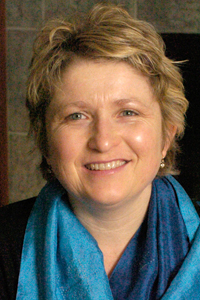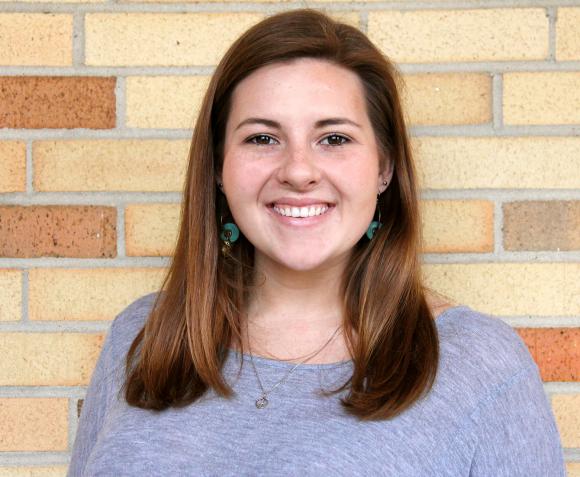 Bonnie Bazata practices what she preaches when it comes to supporting young women as future leaders - by treating them as leaders today. Bazata, who is the Associate Director for the Center for Women’s InterCultural Leadership (CWIL) , expects a lot from the students who work with her, mainly because she believes that they can deliver. “I think when I work with students I treat them like professionals and colleagues. They get work done for us; but even more importantly I take them in the community with me, they go to meetings, they’re involved in planning and implementation of key programs. . . . I want them to know what it takes to provide leadership,” explains Bazata.
Bonnie Bazata practices what she preaches when it comes to supporting young women as future leaders - by treating them as leaders today. Bazata, who is the Associate Director for the Center for Women’s InterCultural Leadership (CWIL) , expects a lot from the students who work with her, mainly because she believes that they can deliver. “I think when I work with students I treat them like professionals and colleagues. They get work done for us; but even more importantly I take them in the community with me, they go to meetings, they’re involved in planning and implementation of key programs. . . . I want them to know what it takes to provide leadership,” explains Bazata.
While active CWIL students Adriana Lopez ’08 and Sarita Fritzler ’08 would call Bazata a mentor, she would describe herself as more of a coach. “It’s like a ‘supervisor-plus.’ You know a supervisor is, Here get this done. A coach is, You can do it, let’s use your strengths, let’s impact this. What are the problems, where is this working, how is it not working?”
Bazata has been with CWIL for the past six years, after working in Tucson, Arizona with The Youth Opportunity Movement. She was the assistant director of a $28 million program that worked with high poverty, high unemployment, and high drop out rates of youth 14-21. Today she’s using her leadership and community building skills to work on the Certificate in InterCultural Leadership, bringing Saint Mary’s women into the community in what she describes as “thickening and multiplying the strands of relationships with the South Bend community.”
Bazata has helped implement the Certificate in InterCultural Leadership at Saint Mary’s. The 2-3 year program integrates classes, retreats, and mentoring and study abroad experiences into an electronic portfolio that can be used to demonstrate acquired leadership skills.
"It’s the piece that says ‘Our world is incredibly complex and that knowing how to work with people who are very different than you are is going to be key to the success of any leader,” explains Bazata. “So if they have to work in South Bend they’re understanding the global implications as well as seeing and understanding the impact of the diverse cultures within the community. And if they’re in Ireland or Italy, they’re really looking at the dynamics of the local cultures as well as gaining insight about their own culture and identity. We want them to understand that culture is active, fluid and changing, and that they are always a part of the picture.”

